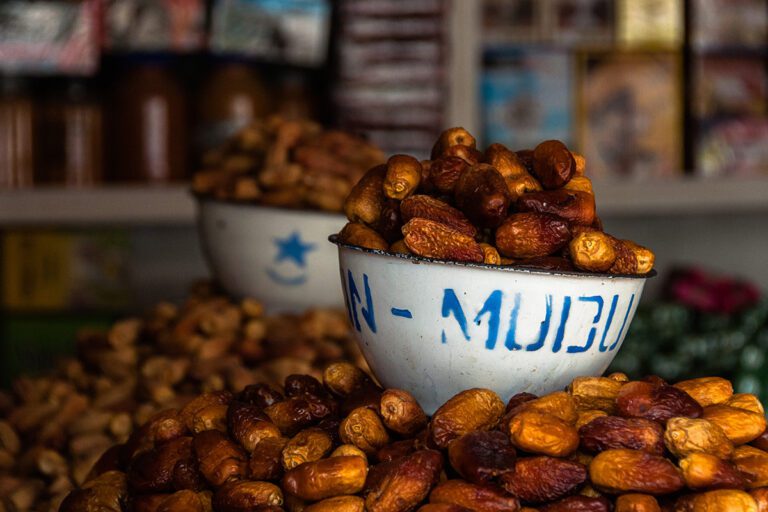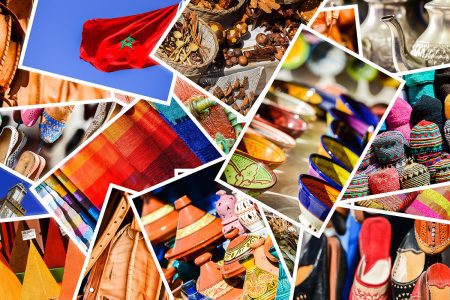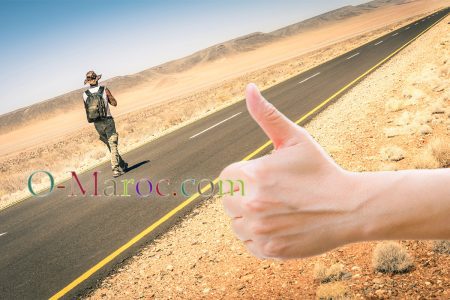With the month of Ramadan getting closer to the summer holidays every year, the question is being asked more and more often
I booked a tour during Ramadan, will things be different, will I be able to eat, do I feel uncomfortable eating and drinking in front of Muslims, should I postpone my holiday?
The answer depends a little on the type of holiday, and in which part of the country, but overall, the answer is:
You can have an excellent holiday in Morocco during the month of Ramadan.
What’s changing everywhere: opening times.
Whether in the North or the South, in big cities or small towns, everything from the administration, banks, Maroc Télécom and official bodies, as well as many businesses, is working non-stop. Work starts around 7am and finishes around 3pm at the latest, 2pm for banks. If for any reason you need to get official papers or change money, do it in the morning.
The timetable for tourist activities doesn’t really change, with one exception: the sacred fast-breaking break.

Breaking the fast
It takes place every evening when the muezzin calls for prayer. At that moment, all the streets are empty, leaving only the “aroumins” or “nazranis” (depending on whether you speak darija or classical), in short those who have not fasted during the day.
About a quarter of an hour beforehand, all the shops are closed, everyone has gone home and is waiting for the voice of the muezzin to start breakfast (rediscovering the original meaning of the word, “to fast”), often with whey and dates, various breads, pastries, tea and coffee with milk, and harira, a thick soup.
The meal will take about an hour, and then people will either go back to work or go to the mosque to pray. In short, allow around 2 to 2? hours after sunset for life to return to normal.
As a tourist, this is THE time to respect. If you need something from your guide, ask him first, or wait a little…
At the same time, if it is really necessary (for example, a camel trek that has not yet reached the bivouac), your guide will break the fast by walking, with provisions in his pocket and his first cigarette.
What varies from place to place.
In the big cities, in the very touristy places, it is possible to find shops and restaurants open all day.
But you will be asked not to use the terrace, to eat inside, even in “reserved” areas such as MacDonalds…

In small country villages in the south, it’s more difficult. Occasionally there will be a café open, where Moroccans sit quietly and chat, doing nothing, and where you may be served a Moroccan omelette at the back of the room and left alone, but overall you will have much less choice than usual, and only a few busy restaurants remain open at lunchtime, with a smaller choice than usual.
Sharing the fast or not?
Your Moroccan friends and guides will often ask you if you “do Ramadan”. Apart from just for a day, I wouldn’t recommend it.
First of all, Ramadan is a religious practice. It is not the fact of fasting that is essential, but the fact of fasting with the spiritual intention of thinking of Allah, and depriving oneself of all that is pleasurable in order to get as close to Him as possible.
“Fasting” actually covers much more than a total ban on eating and drinking from sunrise to sunset. For example, you are not allowed to wear make-up, perfume or enjoy the pleasant scent of a flower, nor of course to have any sexual relations whatsoever, or even to hold your friend’s hand during the fasting period.
And even for a Muslim, doing Ramadan halfway is not doing it at all; the day of fasting is lost, and has to be made up for, more or less easily depending on whether the break was involuntary or not.
I’ve always had the impression – but this is purely personal – that pretending to ‘do Ramadan’ when you don’t really practise the discipline of fasting, including its religious aspects, is more of a masquerade than anything else, and ultimately a lack of respect.
Nevertheless, you might want to try it for a day, just to see.
Longer… don’t forget that the total deprivation of food and water for a long period of time, followed by a sudden injection into the body, is the worst thing you can do to it. I don’t know a single non-Muslim doctor who claims that fasting as practised during Ramadan is good for your health.
And don’t forget either that you don’t have the training of Muslims who practise this fast from childhood, first training for a day or two, then a week… and then fasting regularly throughout the year for shorter periods.
Travellers’ bodies are already subjected to quite a few changes of diet when they come to Morocco, so there’s no need, especially if you’re in the South, to brutalise them even more and dehydrate yourself.
I wouldn’t dare eat/drink in front of someone who is fasting
First of all, the worst thing, from what I’ve been told, is not the deprivation of food and water, but the deprivation of cigarettes for smokers. So if there’s one thing to avoid, it’s waving a cigarette around a fasting Muslim…
After that, it’s mainly a question of moderation. Don’t “forget” and offer, don’t exclaim “ah that’s good, I was so thirsty”, in short keep a low profile.
But with this discretion, there’s no need to feel bad either. A Moroccan also comes into contact with food during the day, either because he meets Muslims who are not fasting for health reasons (sick people, pregnant women, workers doing hard jobs who are allowed to postpone the fasting period…) or simply because he has to prepare the evening meal.
And seeing you drink a little water, or eat something will certainly be a less difficult torture than smelling the cooking smells for an hour or two at home…
Your guides will abandon you during the meal, of course, but they are capable of preparing it for you, and this is part of their normal work.
The upside of Ramadan
Sharing the breaking of the fast.
This is undoubtedly the best part of Ramadan, the evening meal that brings everyone together around a varied assortment of sweet and savoury treats.
You’ll certainly be invited to join in – it’s a pleasure not to be missed, a moment of conviviality and relaxation, and an opportunity to take part in Moroccan life.
And after a few days, you’ll eat less during the day, spontaneously… because it’s impossible to survive by eating like a Moroccan and like someone who isn’t fasting, that’s really a double ration.

Finally, breakfast is often delicious, with special recipes, breads baked with spices, honey pastries… everything you need to get through a long day afterwards.
A month of fraternity and charity.
No one should go hungry during Ramadan. Food is shared, always prepared in such abundance that it can be given to those in need. Mosques distribute couscous in the evenings, people invite each other and share… even if you’re just visiting, you’ll feel the atmosphere.
Long nights of partying.
Life begins again after the fast is broken, and the evening meal will be served around midnight, or even one o’clock in the morning. In the southern cities, such as Agadir, or in Marrakech, the shops will stay open until around 2am. Some Moroccans stay up all night, not going to bed until the last prayer of the night and the pre-dawn meal. Throughout the country, nightlife more than makes up for the quiet of the day.
A very special atmosphere.
In a nutshell, that’s what Ramadan is all about. Your journey will undoubtedly be different, but that doesn’t mean it will be unpleasant or ‘limited’. I love the very early morning, when the sun rises and the muezzin sounds, and in the big cities, the last half-hour before sunset, when the streets are empty and there are no more ants… it’s particularly amusing to see from the 3rd or 4th floor of a hotel overlooking a main street.
The people will be a little different, a little more tired during the day, sometimes a little sleepy, but the evenings will more than make up for it.
 A typo or syntax error? You can select the text and hit Ctrl+Enter to send us a message. Thank you! If this post interested you, maybe you can also leave a comment. We'd love to exchange with you !
A typo or syntax error? You can select the text and hit Ctrl+Enter to send us a message. Thank you! If this post interested you, maybe you can also leave a comment. We'd love to exchange with you !




